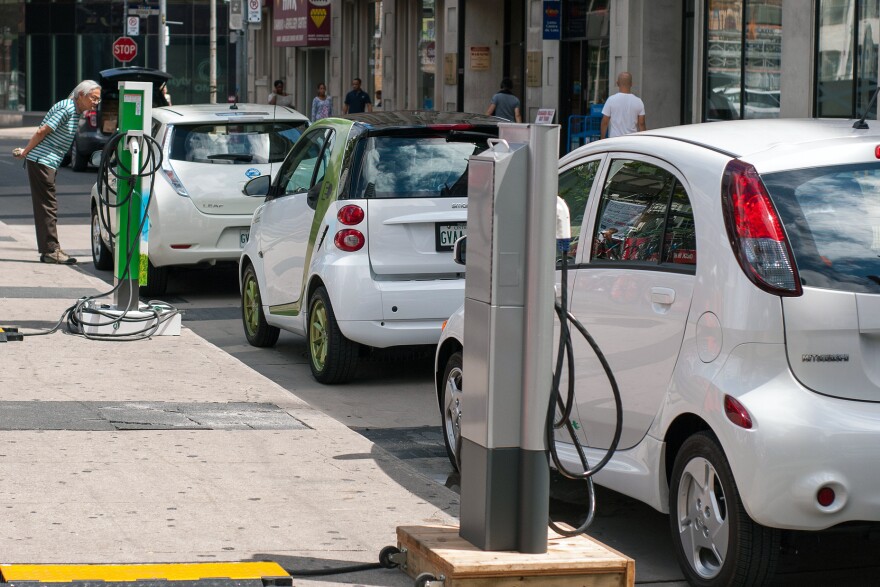For decades, the state has collected taxes on gas to maintain roads and highways, as well as funding new construction, but with the rise of electric vehicles and vehicles with better fuel mileage, fewer tax dollars are going toward these projects, even though people are driving more miles than ever before.
To address the decrease in funding, a representative from the Utah Department of Transportation, Linda Hull, introduced Utah’s new Road Usage Charge, or RUC, program for electric vehicles as one way to counteract the dwindling funds from the gas tax. The program, which begins in January, will be open to a limited number of electric, hybrid and alternative fuel vehicles.
“We know that the current way we fund roads has worked for the last 100 years. It won’t work for the next 100 years,” she said. “Utah has a reputation of always thinking long-term, how are we going to prepare for the future.”
While the gas tax has still contributed to funding state infrastructure projects, the state has had to turn to bonds and federal funding to make up for the eroding funds it once provided.
“It’s not something we need to do right today,” Hull said. “The gas tax is going to be a viable funding source for the near-term, but it’s not going to work long-term.”
The RUC program has two options for those who opt-in. The first is to pay an annual fee of $120 as part of vehicle registration fees, which is based on the estimate of driving 15,000 miles a year. The second option is to pay as you go, at a rate less than $0.02 per mile. This option would also cap out at $120, even if more miles were driven.
The idea behind the program is everyone uses the roads, but not everyone pays the same amount toward funding them.
“I personally believe if you use it, you should pay for it,” said Sen. Scott Sandall. “So I believe in a user-based system for transportation.”
According to Sandall, the usage-based charge is a potential replacement for the gas tax.
“This is a program we think will work, but not until we get the wrinkles out of it,” he said. “I think the majority of people aren’t going to see a difference in it because it’s only expected for maybe 500 cars out of the maybe 2.5 million cars on our state roads.”
One of the wrinkles Sandall talked about was tracking the miles driven in interstate travel to ensure the miles driven in a state would be properly accounted for. Sandall said he felt confident this issue would be figured out in the next five years.
Utah became the second state in the west with legislature enacted to implement an RUC program, right after Oregon. Utah and Oregon are also part of a 15-state coalition dedicated to researching and testing the charge by use system for funding transportation.


